'You want to vape because it's like a trend'
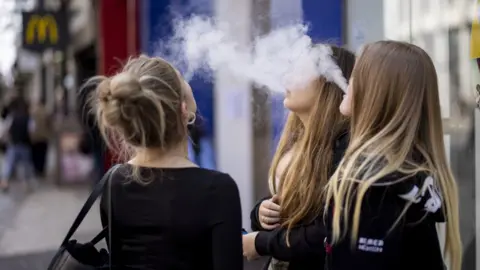 EPA
EPASchools in Scotland are struggling to combat the rise of vaping in young people and children, teaching staff have claimed.
Doctors have urged the Scottish government to ban single-use vapes because of the likely damage to young lungs and the environment.
First Minister Humza Yousaf has said a complete ban is not off the table.
Now staff and pupils at an East Lothian school have spoken out about a problem which is sweeping the country.
It comes ahead of the publication of a report from an expert group later this month.
Chris Thomas, a guidance teacher at Preston Lodge High school in Prestonpans, said vaping was "flooding" the school.
He told BBC Scotland that the school confiscates about 10 vapes a week which are often hidden in bins, toilet cubicles, and ceiling tiles in the bathroom.
"It's been on the increase over the last year and before as well," he said.
"It's caused a huge disruption to learning and teacher time is now directed towards toilets to try and retrieve vapes and get kids out of toilets and back into classrooms.
"There's health implications and the learning implications are massive as well."
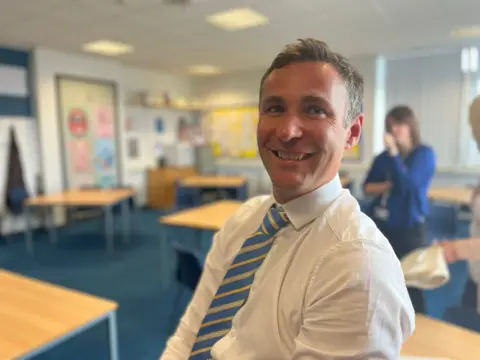
While the school previously had a process for addressing children smoking and helping them quit, vaping is an entirely different challenge.
Mr Thomas said: "It's too big a problem for us to deal with on such an individual basis so we've got a blanket approach to try to deal with it. We're not winning.
"It's impossible to police because you can do it so quickly, so quietly, so subtly.
"It's so seductive for kids as well because if you've got a vape, you've got friends immediately.
"To try and stop that in the classroom environment is impossible and the senior management is really struggling to stay on top of it."
He said pupils had claimed that people will often buy boxes of vapes and sell them on an individual basis.
"It taps into that teenage psyche where it's something secretive that they're doing and against the adults," he said.
"It's rebellious, colourful, fun and it tastes good. It's really hard to battle against."
Despite doctors suggesting that vaping can negatively impact young people's health, Mr Thomas said parents often do not take it as seriously as smoking.
He said: "It's mixed - some parents are horrified and there are proper consequences put in at home.
"But I definitely deal with quite a large cohort of parents who don't seem to see a problem with it."
Scottish government data shows that one in 10 15-year-olds in Scotland regularly use e-cigarettes - up from 3% in 2018.
Pupils at Preston Lodge said vaping had become much more common in school.
'Since coming to high school, it's become very popular'
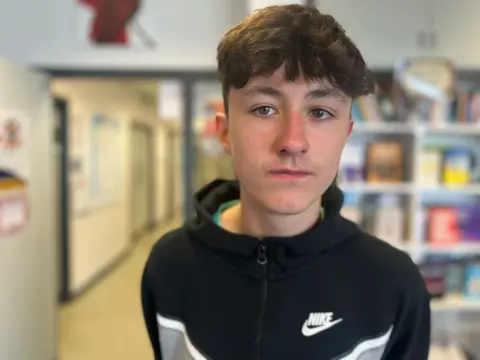
"You just walk in the toilet and you see someone with a vape," said Archie.
"Since we've come up to high school it's become really popular, since Covid really.
"When we were told the percentages of kids that used vapes, I was shocked. I thought it would've been more."
Students said they did not notice vaping disrupting school life, as vaping had been always been present since they started secondary school.
Lara had previously vaped but quit when she was caught by her parents.
'I found it was a coping mechanism'
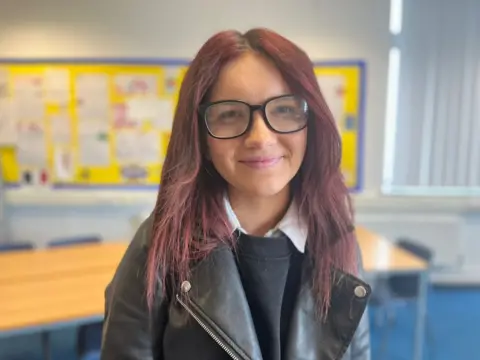
"If everyone's vaping then you want to vape as well because it's like a trend," she said.
"I didn't really like it and I didn't really not like it. I was quite indifferent towards it.
"I did it because I found it was a coping mechanism and it was better than what I was doing before."
She added: "I do understand how people can get addicted. And you do stuff like that when you're young."
Students said that since vaping was seen as an alternative to smoking, the harmful affects might not be taken as seriously.
Katie said more should be done to show the harmful effects of vaping.
'We need to hear more about why it's bad for you'
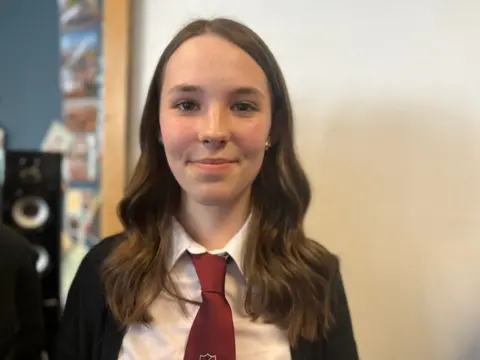
"All through school, we're taught not to smoke and that it's so bad for you and what it does," she said. "Whereas for vaping, that's not there.
"We need more information about it, like why it's bad. So that people learn about it earlier on, so that they don't do it."
She said the packaging should be changed to show the negative health impacts, similar to tobacco products.
"Younger kids might also react better to other young kids telling them about the problems," she added.
"Rather than a teacher just lecturing them on what to do."
